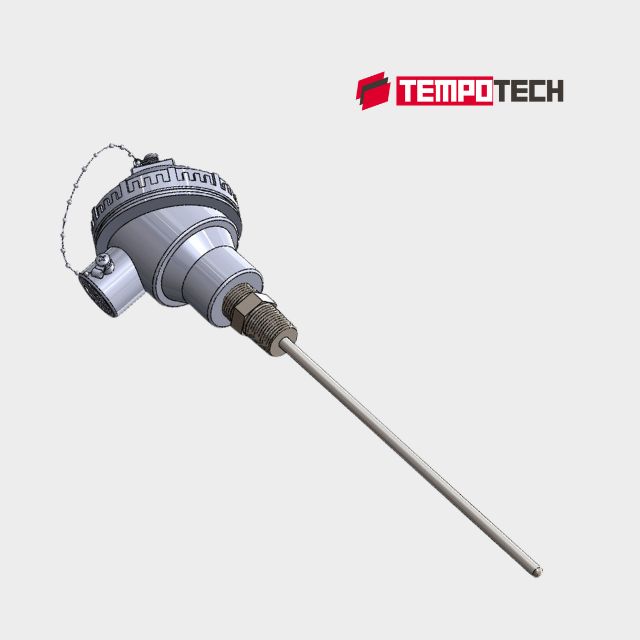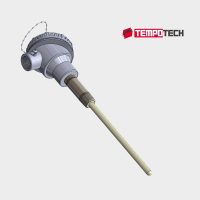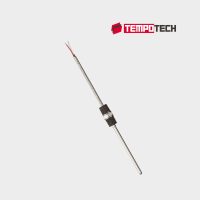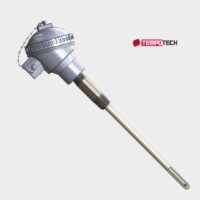RTD72- An Averaging Industrial Resistance Temperature Detector is a temperature-sensing device designed to measure the temperature across the suface area or zone. It allows for uniform temperature measurement around the covered zone instead single point like traditional RTD sensors. In the sensor multiple sensing elements are placed at different point to sense the temperature along the entire length of the sensing probe. Sensor can be bent into a various shapes of loop to cover the temperature zone.
Key Features:-
- Custom sensing length
- Heavy Industrial design for harsh application environments
- Flexible bendable design for easy installation.
- Connection head contains terminals or 4-20mA output temperature transmitter for signal conditioning.
- Available with Pt100 or Pt1000 elements per IEC 60751 standard in Class A or Class B accuracy ratings.
- Available in 2-wire, 3-wire, or 4-wire configurations for enhanced accuracy and reduced lead wire resistance errors.
- Available in 304, 316, or 316L stainless steel for corrosion resistance and sheath diameters range from 3mm to 12mm (custom sizes available).
- Insulation Resistance : 100 MG Ohms @ 250 vdc
- Response Time : <5 Sec in circulating water @ 1ft/sec
- Accuracy : As per IEC60751 (See tolerance chart)
- Self Heating Error: < 0.30°F (0.17°C)
- Time Constanat : < 5 sec

Application Note
Temperature monitoring plays a critical role in various industrial sectors, ensuring optimal performance, safety, and efficiency. In power plants, it is essential to monitor the temperature of boilers and turbines to prevent overheating and maintain safe operating conditions. Similarly, in chemical, petrochemical, and process plants, reactor and process temperature control are crucial for maintaining chemical reactions at their desired rates and ensuring product quality. In metallurgy and steel plants, accurate furnace and molten metal temperature sensing is key to preventing damage to equipment and ensuring the proper forging and casting of metals. Additionally, in the food and pharmaceutical industries, hygienic temperature monitoring ensures that processes adhere to strict safety and quality standards, avoiding contamination or spoilage. Lastly, in oil and gas refineries, monitoring the temperature of pipes, tubes, fan bearings, and pumps is vital to prevent equipment failure, improve operational efficiency, and safeguard personnel. In all these sectors, precise temperature control and monitoring are fundamental for maintaining safety, quality, and productivity.






